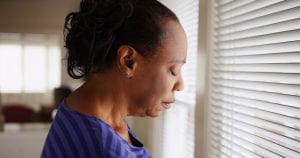If you haven’t observed it first-hand, you’ve likely heard of “the widowhood effect” – where older people who lose a spouse have an increased chance of dying themselves.
A 2013 longitudinal study in the Journal of Public Health followed more than 12,000 people over age 50 for 10 years. The results clearly demonstrated that when a spouse dies, the surviving partner is significantly more likely to die within the next three months.
Now researchers are asking, what’s going on here? Can someone really die of a broken heart? They are finding that grief leads to physical changes in the body that affect a person’s health.
A systematic review published this month in the journal Psychosomatic Medicine takes a careful look at the body of evidence on physical changes resulting from grief. The systematic review found thirty-three high-quality studies that looked at the link between bereavement and immune function.
Researchers found that a variety of physical changes occur when someone loses a spouse. In separate studies, surviving spouses had higher levels of systemic inflammation. The genes that control their immune systems were more likely to respond inappropriately. And their body was less likely to produce antibodies when they received vaccines.
Maybe most surprising, participants’ changes in mood function varied based on how they reacted to their spouses’ deaths. People who felt more depressed had greater changes in their mood function compared to those who felt less sad and depressed.
A separate study published last year in the journal Psychoneuroendocrinology found that widows had lower heart rate variability and produced more cytokine – both biological markers of heart disease – than those who were not bereaved.
Anthony Ong, a researcher in the College of Human Ecology at Cornell, has studied what factors help bereaved spouses to maintain positive daily emotions despite their losses.
His research has shown that people who demonstrate psychological resilience – the ability to overcome, steer through and bounce back from adversity – before the death of their spouse are better able to maintain daily positive emotions after a loss. Interestingly, the authors found that relief from a difficult and strained marital relationship can also help people maintain positive emotions following the loss of a spouse.
The take-home message is that becoming a widow can lead to significant and serious physical changes for some people. However, people will adjust differently when a spouse dies. This is may be rooted in the surviving spouse’s resilience and the marriage quality in the years leading up to the death.




Speak Your Mind